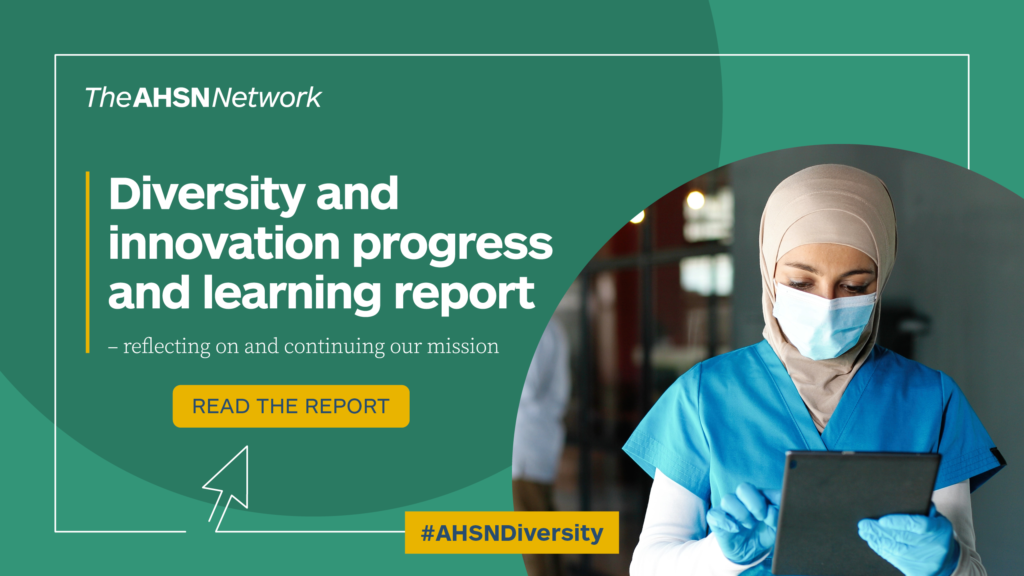A note from our Vice Chair
In 2019, the AHSN Network made key pledges to demonstrate our commitment to diversity and innovation. Our pledges, adopted by all 15 AHSNs, have guided us to embed diversity and inclusion in all aspects of our organisations and our work. I promised in our first report to tell the story of what we have achieved as a result of our pledges. This new report is part of that promise. But it is also a call to action to our NHS partners, government, and our innovation and life sciences industries to join us in the mission we have instigated, collaborate with us, and adopt and adapt our pledges for your own innovation programmes.
Hear more about why greater diversity in innovation is more important than ever in my blog.
The work that we have done together over the last two years has undoubtedly had real impact on improving the way that we serve our patient and innovator communities. We have no intention of ending this journey of progress. But we now want to open the invitation to join us and create a movement that can be owned and progressed by the wider UK innovation and research communities. You can see our new equality, diversity and inclusion pledges and actions here.
A few examples of the learning case studies that we have gathered through this approach can also be accessed using the links below.
You can access a PDF of our report here: Diversity and innovation progress and learning report – reflecting on and continuing our mission.
Richard Stubbs
Vice Chair of the AHSN Network, Chief Executive Officer of Yorkshire and Humber AHSN and AHSN Network Diversity and Inclusion group lead

“Health equity is the attainment of the highest level of health for ALL people. Achieving health equity requires valuing everyone equally with focused and ongoing societal efforts to address avoidable inequalities, historical and contemporary injustices, and social determinants of health — and to eliminate disparities in health and health care.” (health.gov) Within the NHS there [...]

Sickle cell disease (SCD) is a serious and lifelong health condition. People with SCD produce unusually shaped red blood cells that can cause problems because they do not live as long as healthy blood cells and can block blood vessels. This can result in suffers experiencing painful episodes, called sickle cell crises, as well as anaemia, [...]

At the Royal Society of Medicine’s Tackling Inequalities conference it was clear from the passion in the room that great progress has been made across the system to better support some of our most under-served communities. To maintain this momentum, we must not just embed tackling health and healthcare inequalities in all that we do, [...]







